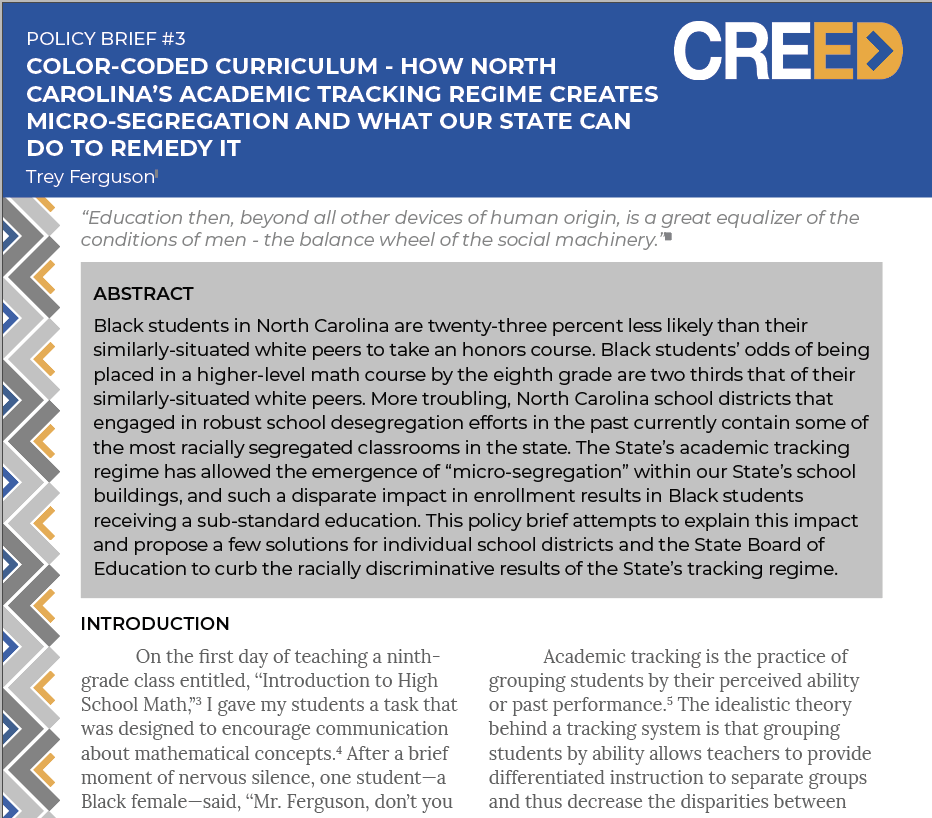Policy Briefs
Appealing for an appeal process for short-term suspensions in NC
Policy Brief #1 represents the first in a series to be produced by CREED that focuses on pertinent race and education issues in North Carolina. The purpose of this policy brief is to discuss and weigh the implications of North Carolina’s regulations governing school discipline, more specifically the lack of an appeal process for short-term suspensions. Following an explanation of statewide data of short-term suspensions, an overview of NC.G.S.§115C-390 is discussed followed by call to action recommendations for North Carolina state legislators, school staff, and local boards of education to amicably implement an equitable appeal process.
Hu(e)man Capital: The Need for More Teachers of Color in North Carolina
This policy brief highlights the need for greater diversity among North Carolina’s teacher workforce. Although the majority of public school students are people of color, nearly 80% of North Carolina’s teachers are white. Following an overview of the problem, the brief reviews the research literature on the benefits of student-teacher racial matching, describes the policy context for teacher diversity in North Carolina and addresses common misconceptions about teachers of color. The brief concludes by proposing four recommendations to increase the supply of teachers of color in the state: 1) adding race to the Teacher Working Conditions Survey, 2) ensuring school districts develop teacher diversity plans, 3) evaluating educator preparation programs on diversity, and 4) developing strategic partnerships with Historically Black Colleges and Minority Serving Institutions.
Color-Coded Curriculum - How North Carolina’s Academic Tracking Regime Creates Micro-Segregation and What Our State Can Do To Remedy It
This policy brief highlights the problems associated with academic tracking, the practice of separating students into different classes based on perceived academic ability or past performance. Students are first tracked in elementary school and typically remain on a track once assigned. Following an overview of the issue, the brief examines the origins of academic tracking, describes how the practice is currently used in North Carolina’s public schools, and then outlines ways that academic tracking harms students, particularly students of color. The brief concludes by proposing three possible alternatives to the current academic tracking system which deny students of color access to high-quality education: 1) eliminate the tracking system altogether, 2) alter the teacher-recommendation process to limit the impact of conscious and unconscious bias on which students are selected for advanced level courses, and 3) allow students to self-select into honors and advanced level courses.




